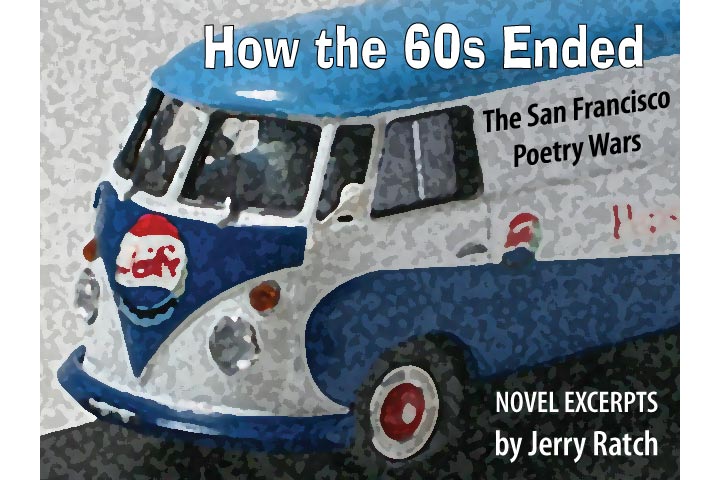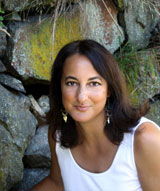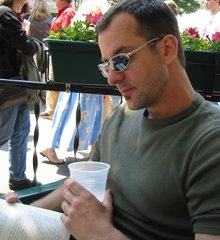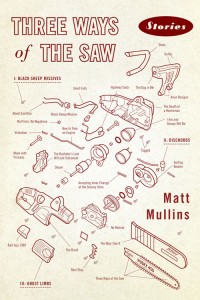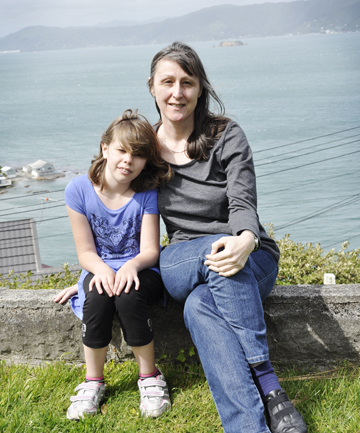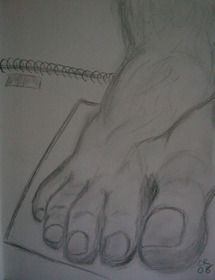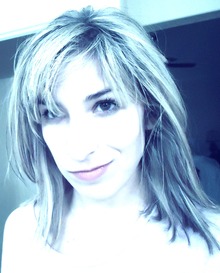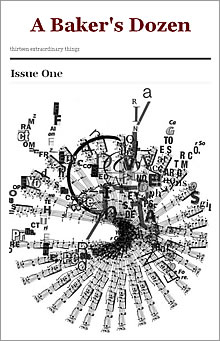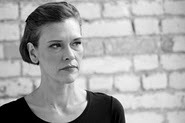
Bill Yarrow: Ann, you write in many different styles, but I think of you as an avant-garde writer and “Letters, notes, conversations, partings” is one my favorite avant-garde pieces by you. Can you tell us a little about it—its inception, your process in writing it, the form it took, whether this came out whole or was revised, etc.
Ann Bogle: I was so assured back in October when I posted “Letters, notes, conversations, partings” at Fictionaut that you and a few other readers — Sam Rasnake, Joani Reese, David Ackley, Christopher Allen, Kathy Fish, and Robert Vaughan — could decipher the piece. I was also excited when THIS Literary Magazine asked to publish it. I wrote it in 2000, where I had been living for years at my mother’s house in Minnetonka, Minnesota. I had gone through a “recovery” period (from social drinking) and was not writing much creatively, except for letters sent as email. One day I wrote this “list” (that contains lists) and it came out exactly as you see it here. It reminds me of early morning writings I had written in pencil, but I think I typed it. It includes my rendition of the hexagrams of the I-Ching. I never fully understood my fascination with the hexagrams or why I wanted to communicate through them. My partner in my 20s, Bruce Johnson, had designed a font for the hexagrams while visiting me once in Houston, and I had incorporated them as illustrations in my mixed-genre work.
Bill: I am interested in your comment that certain readers would be able to “decipher the piece.” Could you talk about that idea of deciphering, please? Do you feel writing in general (or perhaps 21st century writing) is a cipher? Do you feel your writing specifically (or this particular piece) is a cipher? In what way? What characteristics are required of readers for “decoding” avant-garde writing or writing in general? Does the word “decipher” suggest that there is something specific hidden in the piece or that its virtues are perhaps not immediately accessible or not accessible to all readers?
Ann: This piece is not coded. I wrote it out of a kind of cleanliness or exhaustion, a wish to be as simple, minimal, and tuned as possible, tuned to an ear in space perhaps, as I discovered its pitch. The entire question reminds me of John Ashbery’s writing — what people apparently have said about it — that it is difficult and frequently inaccessible. In an interview with Time, Ashbery notes that he writes, aware that his work mystifies many others though it makes sense to him. And to me. My partner now, as I near 50, the poet Tony Sanders, describes deciphering and decoding in terms of the following exercise: to read, to “translate” literature from a language unknown to one. Russian was his example, but it could be any language in which one may not know even the alphabet. The process that begins to take place is, as he describes it, the discovery of melody, and melody both makes and subverts sense.
Bill: I love that answer, particularly your characterizing this writing as “tuned to an ear in space perhaps,” as you “discovered its pitch.” I think that’s a very good way to think about “Letters, notes, conversations, partings,” a piece in which discovery is central and ongoing, a piece in which the writer, in writing, discovers the pitch of the creation, while the reader, in reading, hears and comes to understand the melody that “both makes and subverts sense.”
You mention Ashbery in terms of difficulty. I don’t find your piece difficult, but I do find it mysterious and entrancing. It reminds me of Christopher Smart’s Jubilat Agno, particularly in a line like “Florence is a master technician of sacred Latin horticultures.” The letter and the number sections are very melodious and remind me of the alternating “Let” and “For” sections in Smart’s poem, but your examples are so playful, as when you write, “E. is for renaissance” and “N. is for Harvest.”
Why does the alphabet section begin with N, V, and Z before the alphabet proper commences? I love that it does that but wondered whether those letters had any particular meaning for you.
Ann: N is for Harvest. N is the 14th letter in the alphabet. The 14th hexagram is Harvest or Possession in Great Measure. Another way of thinking about the hexagram is to place, pictorially, fire or flame over heaven. Or numerically, 7 over 1 (14th). V is woman? Eve? V is Vater. V is to F as Vater is to Father. E is Elizabeth. Z is sleep.
Bill: I was also struck by the three repetitions of the word ana. “A. is for ana”; “Ann is ana”; and “Ana is a recycling choice.” Did you mean ana in the sense of “a collection of things connected with a famous person, place, or period, especially spoken or written information, anecdotes, or sayings,” as in the Menagiana or Johnsoniana or did you have something different in mind?
Ann: Ana as a collection of bon mots or anecdotes, exactly. Ana Verse is my blog.
Bill: Your idea that “Ana is a recycling choice” is brilliantly phrased and a great way to talk about the nature of fiction. I connect that “recycling” idea with the idea of remembering, using memory in fiction. I know that the intersection between fiction and memoir is one that interests you greatly. Could you comment on the use of memory in “Letters, notes, conversations, partings”? Some lines (particularly the name references in the “Everywhere words” section) seem autobiographical.
Ann: When I wrote “Letters, notes, conversations, partings,” I thought I was at a crossroads. I wanted to be at a crossroads. I predetermined I was there, as a way of calling time. I thought four years was long enough for writing letters from my mother’s house. The lists in the story — if I can call it that — are written from the point of view of time starting anew. The assessment of the past is cursory, critical, as if I were packing only for a brief trip, taking only those things with me that were necessary for survival. Yet it isn’t survival in the dire sense. Survival in the sense of continuance.
Bill: You write, “Memoir is mer-memory.” “Mer” as in “sea”? Do you consider this piece memoir? If so, in what sense is it memoir? Or do you think of this as part of your “mixed genre work,” memoir being one of the parts?
Ann: I consider the piece personal and rhythmic. If it were merely personal, then perhaps readers would not be able to access it as writing. I guess it is accessible and the matter in it becomes transformed through rhythm to become work intended for an audience. Mer is sea, yes! And yes it is mixed genre — perhaps a poem, perhaps a list story, perhaps memoir. And the numbers are there, too, of the alphabet and hexagrams.
Bill: Thank you, Ann, for sharing your insights about this many-layered, fascinating work.
Read “Letters, notes, conversations, partings” by Ann Bogle
Monday Chat is a bi-weekly series in which Susan Tepper has a conversation with a Fictionaut writer about one of his or her stories. Susan’s new book From the Umberplatzen is a collection of linked-flash published by Wilderness House Press. This week, Bill Yarrow is the guest host.
